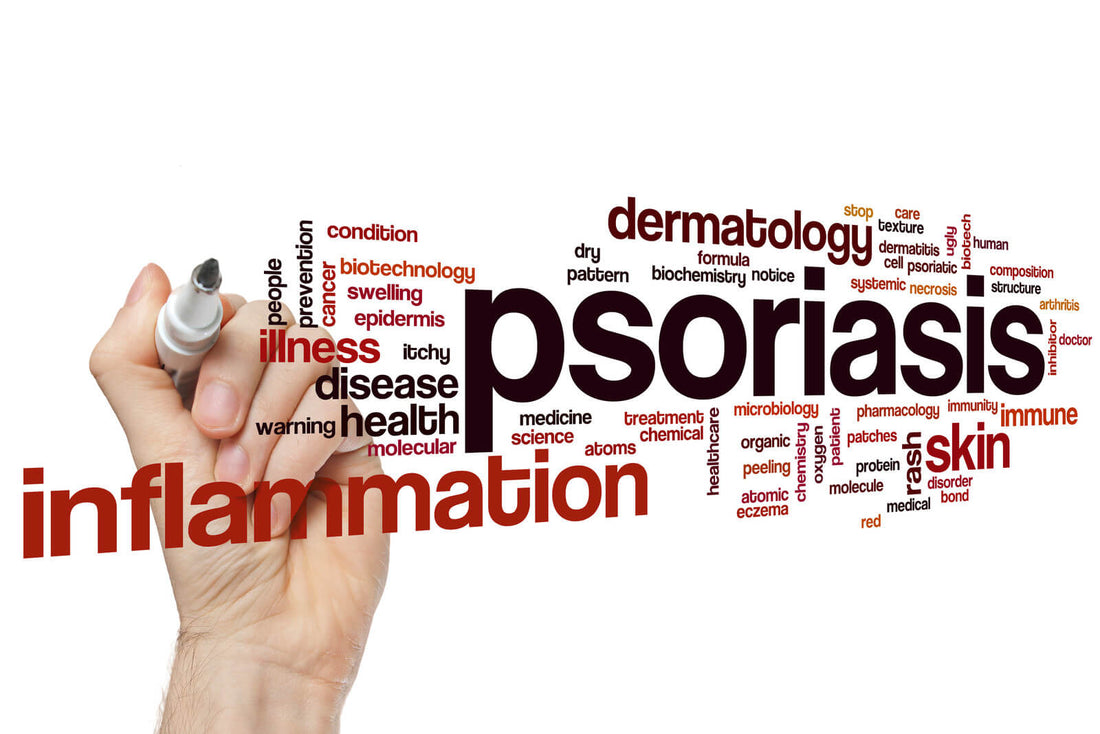
Are immune system dysfunctions responsible for the causes of Psoriasis?
Share
Psoriasis is a chronic skin condition characterized by recurring episodes of exacerbations and remissions. The patients develop plaques of thick patches on the skin along with scaling. The dry flakes of the skin may also occur due to the rapid proliferation of skin cells. Immune system dysfunctions have been found to play a role in triggering these causes of psoriasis.
In fact, the risk of other skin diseases such as dermatitis and eczema is also higher in patients suffering from immunological problems. In this series, we will discuss the various skin diseases that occur due to a weak or improperly functioning immune system.
Psoriasis can affect multiple parts of the skin resulting in considerable disfigurement. Unfortunately, there is no cure for psoriasis. However, controlling the causes of psoriasis such as immune system dysfunctions can provide significant relief from the recurring exacerbations of this disease.
Here is a brief discussion about the immunological factors that trigger the symptoms of psoriasis and how regulating immune system functions can provide an effective way to manage this disease.

Role of the immune system in triggering the causes of Psoriasis
The role of inflammation
Psoriasis usually affects the skin of the knees, elbows, and scalp. The rapid proliferation of skin cells in these regions is often triggered by inflammatory chemicals produced by the T-lymphocytes. Inflammation is a basic protective mechanism triggered by the immune system to fight any foreign body such as pathogens. When the immune cell recognizes an invader within the body, it releases T cells, which attack and destroy foreign bodies to restore health. However, this mechanism, when uncontrolled, can result in skin diseases such as psoriasis, dermatitis, and eczema. Patients with psoriasis often suffer from underlying immunological causes of psoriasis that result in uncontrolled inflammation. This causes severe damage to the skin, which is followed by a rapid proliferation of skin cells in an attempt to replace the damaged or dead cells. It is this abnormal response of the immune system that is responsible for the flaking and scaling of the skin caused due to psoriasis. These underlying causes of psoriasis can be managed effectively by controlling the abnormal response of the immune system.Production of antibodies
An excessive production of antibodies by immune cells is another abnormal mechanism involved in triggering the causes of psoriasis. The presence of antibodies indicates the autoimmune nature of this disease. It proves that skin lesions caused by psoriasis occur due to the response of the immune cells to the body’s own healthy skin cells. These mechanisms result in the development of skin lesions as the antibodies consider the healthy cells as foreign bodies and cause severe damage. This triggers the process of regeneration of the skin resulting in the formation of crusts and scaling. Research studies have also indicated the involvement of an antigen-independent activation of T-cells in the occurrence of the symptoms of psoriasis. These findings indicate the need for immunological intervention for the management of psoriasis.
